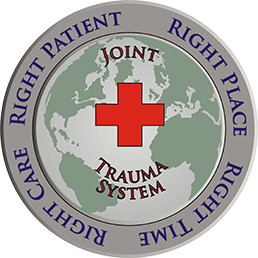JTS Raises the Bar for Clean Data Sets
"Analysis is only as good as the data."
Good data equals clean data. As the host of the most complete combat casualty care registry available, the Joint Trauma System (JTS) is taking extra steps to guarantee our partners receive the most accurate and meaningful data possible.
The JTS DoD Trauma Registry (DoDTR) captures vital data points along the patient journey and records detailed information of which clinical measures were taken to help our patients. These data points are then used in reports and dashboards to gain insights on patient care and to help devise guidelines to monitor and improve outcomes. The data must be correct and as error-free as possible in order to maximize its value. The data often starts its lifecycle by being manually documented on paper before being entered and abstracted into the registry. This personal attention presents an opportunity for data cleansing. The JTS recently refined its data cleansing and quality assurance processes to catch common errors. The in-house developed process scans all records that meet certain criteria and evaluates key data points to ensure they are correct. If incorrect data is found, the process catalogs it and provides detailed information to the data cleanup team. There the data is assigned to a team member who reviews the actual chart and other data points and then corrects the data as needed.
The process identifies many of the basic data issue most registries encounter. Common errors include:
- mistyped data, such as a temp of 1011 instead of 101.1
- dates in the wrong order, such as an injury date of 01JAN2021 and admission date of 01JAN2020
- incorrect measurement units, such as a weight of 210 kilos instead of pounds
The new process is also able to catch gaps, errors, or inconsistencies in clinical care. Here are two such examples:
- The determination of how many patients did or did not receive certain meds administered within a certain time. If injury date is incorrect, we might miss patients that should be evaluated.
- Capturing instances of patients who have a specific blood pressure to see if they had blood products administered according to established criteria. If the underlying data is wrong, we would never know about those patients and could not do a deep dive on their care to either learn or correct the procedures.
The JTS data abstraction team checks and monitors over 250 data points on a weekly basis for the DoDTR and JTS' specialty injury registries such as traumatic brain injury, orthopaedic, and COVID. There has been tremendous progress in ensuring the highest quality data is used for reports and dashboards. The result: JTS customers receive cleaner data to gain valuable insights and make informed decisions on providing our wounded warriors with the best care possible.
 An official website of the United States government
An official website of the United States government
 ) or https:// means you've safely connected to the .mil website. Share sensitive information only on official, secure websites.
) or https:// means you've safely connected to the .mil website. Share sensitive information only on official, secure websites.

